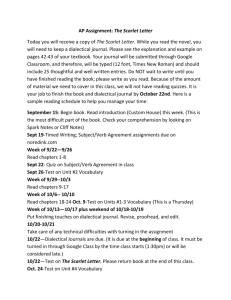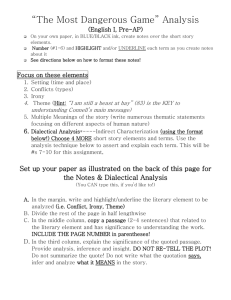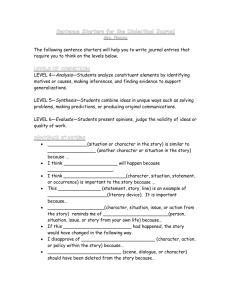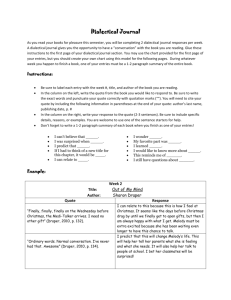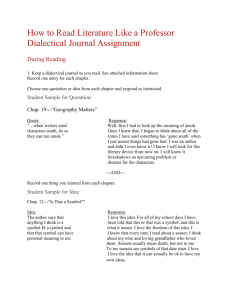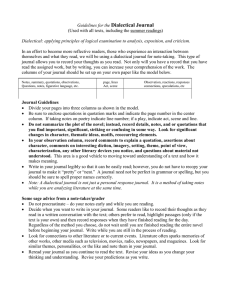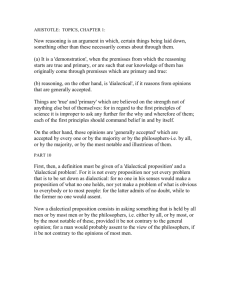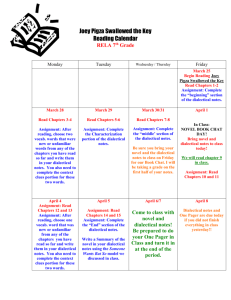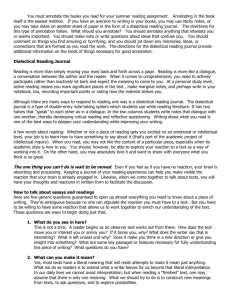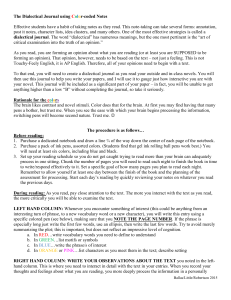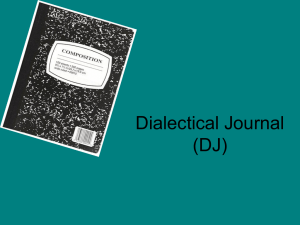To Kill a Mockingbird Dialectical Journal
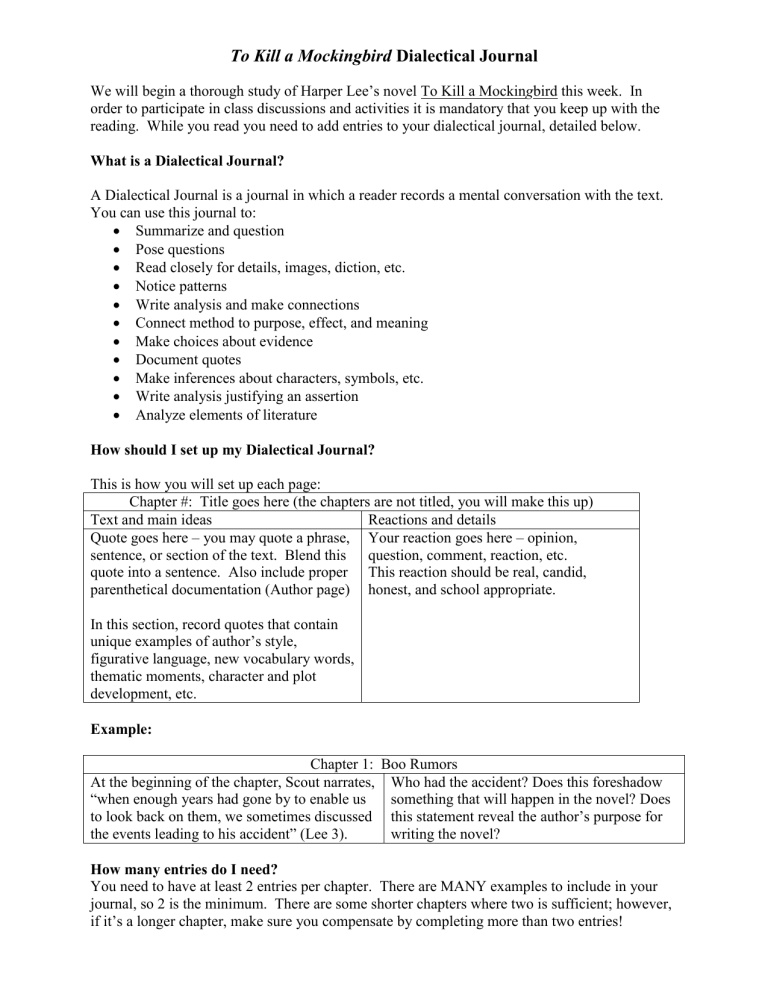
To Kill a Mockingbird Dialectical Journal
We will begin a thorough study of Harper Lee’s novel To Kill a Mockin g bird this week. In order to participate in class discussions and activities it is mandatory that you keep up with the reading. While you read you need to add entries to your dialectical journal, detailed below.
What is a Dialectical Journal?
A Dialectical Journal is a journal in which a reader records a mental conversation with the text.
You can use this journal to:
Summarize and question
Pose questions
Read closely for details, images, diction, etc.
Notice patterns
Write analysis and make connections
Connect method to purpose, effect, and meaning
Make choices about evidence
Document quotes
Make inferences about characters, symbols, etc.
Write analysis justifying an assertion
Analyze elements of literature
How should I set up my Dialectical Journal?
This is how you will set up each page:
Chapter #: Title goes here (the chapters are not titled, you will make this up)
Text and main ideas Reactions and details
Quote goes here – you may quote a phrase, sentence, or section of the text. Blend this quote into a sentence. Also include proper parenthetical documentation (Author page)
In this section, record quotes that contain unique examples of author’s style, figurative language, new vocabulary words, thematic moments, character and plot development, etc.
Example:
Your reaction goes here – opinion, question, comment, reaction, etc.
This reaction should be real, candid, honest, and school appropriate.
Chapter 1: Boo Rumors
At the beginning of the chapter, Scout narrates,
“when enough years had gone by to enable us to look back on them, we sometimes discussed the events leading to his accident” (Lee 3).
How many entries do I need?
Who had the accident? Does this foreshadow something that will happen in the novel? Does this statement reveal the author’s purpose for writing the novel?
You need to have at least 2 entries per chapter. There are MANY examples to include in your journal, so 2 is the minimum. There are some shorter chapters where two is sufficient; however, if it’s a longer chapter, make sure you compensate by completing more than two entries!
5-6
7-8
9-10
11
12-13
14-15
16-17
18-19
20-22
23-24
25-31
What if I am absent?
You will need to read the chapter or chapters you missed on-line at: http://photo.goodreads.com/documents/1239291793books/2660.pdf
Once you’ve read what you missed during class, complete the dialectical journal.
Topics for Dialectical Journals
Here are some possible topics for your Dialectical Journal. You are not limited to the topics on this chart; this is merely a starting point.
Chapter Topics
1-2
3-4
Point of view, setting, characterization, satire
Society, style, foreshadowing, themes
Gothic theme, repetition for effect, motifs
Gender roles, style, allusions,
Character relationships, determination, gender roles, lessons, symbolism
Courage, symbolism, characterization
Racism, style, femininity
Theme, coming of age, prejudice
Characterization, societal roles,
Theme, character motivation
Mr. Raymond, equality/fairness
“folks,” style, gender roles
On your own!
